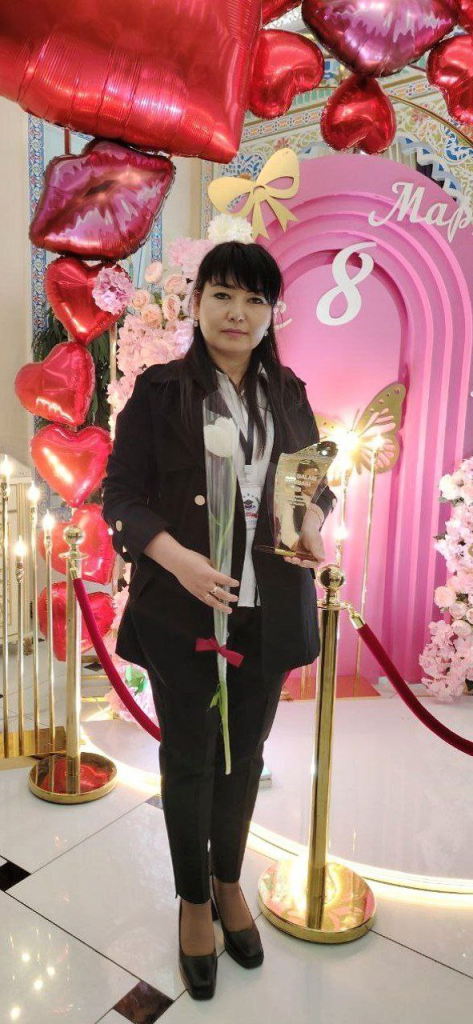War Diary of Yeugenia Belorusets, Ukraine 2022 The Beginning Air Raids Tense Silence Bomb Shelter An Extinguished City Time to Be Brave “It’s 3:30 p.m. and we’re still alive” A Way of Life that Swallows Everything “The night is still young” A Blemish on the Landscape Illusions Too Tired for the Shelter An Unexpected Gift Rockets Over Kyiv In War, One Thinks Only of War Tactical Retreat The Picture of the Man and the Cat Deceptive Illusion The Houses That Disappeared “Kyiv will be as clean as Berlin” “Risk of injury” The Smell of Burning Forests Here in Kyiv Endless Cannonades Islands of Temporary Calm In the Nerve Center of Catastrophy A Changed City Laughter Returns to Kyiv A City Drowns in Blood “This diary cannot be completed; it can only be interrupted” An Ya’s Ghost Music I was certain this was a dream Everything besides the mushroom was buried in darkness “It’s normal that you don’t understand.” the mushroom said. I had no choice but to trust the mushroom It was not until later, after the sonata had ended and I was stepping into the shower, that I noticed the musky smell on my fingers.” “Can you tell Bowen our town has turned orange?” “I can send you a picture if you like.” “It happened the night the dust landed on the river.” “He fell in and nobody was there to help.” Apparently, Julia hung herself in the middle of the night She must have taken a shower beforehand because when they found her, her hair was frozen through “From afar she looked like a giant icicle.” “I didn’t think she was real.” I wasn’t sleeping at all at night I unfolded the instructions that came with one of the mushroom kits Watch the mushrooms grow Random Entries From R. Crumb’s Dream Journal Dream of Burning Insects Dream of Right-Wing Christians: I am murdered Recurring Travel Anxiety Dream Dream I Will Myself to Shrink in Size Erotic Dream of Patty and Aline Dream of Throwing Snowballs Recurring Dream of Underground Caves Dream of Being Captured by Government Agency Dream of Cruel, Sarcastic Brazilian Man Dream of Double Sex with Aline Same Day: Dream of Zaro’s Death Ray Machine Deam of Playing Old-Time Music with Some Young Men and Boys Dream of Runaway Camel Dream of Assertive Girl at a Party Dream of Miniature Gothic Sculpture Dream of Fucking a Woman Dream of Finding Old Records and Talking to My Mother on the Telephone Dream of Scorpion and Shit Dream of Family of Giants Dream of Advancing Flood Waters Nightmare of Hovering Presence Dream of Flying Saucers and Talking to Aliens Marianne Faithfull You can’t always get what you want As tears go by This little bird Sister morphine Just like a woman First person to say fuck in a mainstream movie The Girl on the Motorcycle Naked Under Leather The Seven Deadly Sins Pirate Jenny Ophelia Florence Nightingale Maria Theresa Alice in Wonderland Irina Palm Memories, Dreams, Reflections Three Penny Opera I Got You Babe Duet with David Bowie Broken English 20 the Century Blues A Secret Life Dangerous Acquaintance(s) Vagabond Ways Easy Come, Easy Go Kissin’ Time: Parental Warning Explicit Content Blazing Away: Explicit Content with no Parental Warning Myths to Live By: Official U.S. Government Booklet 1950 Your chances of surviving an atomic attack are better than you thought Close to an explosion, your chances are one out of ten Beyond a half mile, your chances of survival increase rapidly Injury by radioactivity does not necessarily mean you are doomed to die or be crippled Don’t be misled by wild talk of “super super bombs” Doubling a bomb’s power doesn’t mean doubling the damage it will do Blast and heat are the biggest dangers To protect yourself from blast, lie down in a shielded spot In your house lie down against a wall Outdoors: get next to a solid building To escape temporary blindness, bury your face in your arms Flash burns are a serious cause of injury: shield yourself from the flash Even a little material gives protection from flash burns so be sure to dress properly Radioactivity is the only way besides size in which atomic bombs differ from ordinary ones We know more about radioactivity than we do about colds Injury from radioactivity depends upon the power of the rays and particles, how long you were exposed and much of your body was hit Explosive radioactivity is the most important kind, but it is only for a moment Even canned and bottled foods may be irradiated, but will be safe to sue them Vomiting and diarrhea are the first signs of radioactivity sickness Even if you should get severe radiation sickness you would have a better than even chance of recovery There is little you can do to protect your house from the blast It is better to figure on collapse of the upper floors and to take cover in the basement YOU CAN SURVIVE Aspects of Barthes' Mourning First wedding night. But first mourning night? She would say with relief: the night is finally over In the sentence, “She is no longer suffering.” To what, to whom does she refer? What does the present tense mean? Don’t say mourning. It’s too psychoanalytic: I’m not mourning. I am suffering. How am I going to manage to live here all alone? And, at the same time, it’s clear there is no other place. Sometimes, very briefly, a blank moment-a kind of numbness- which is not a moment of forgetfulness. That terries me. …henceforth and forever, I am my mother I was not like her, since I did not die (at the same time) as her. The measurement of mourning. Eighteen months for mourning a father, a mother.
Poetry from Mesfakus Salahin
Come in My Heart Come here, in my heart Here is your paradise. Hear the sound of love; The music of dream. That adorn the way to heart To say 'welcome' to you. Come here, in my heart See the sea of passion ; The ferry of emotion ; The boat of togetherness. We are together Forever and forever. Come here, in my heart We are the legs of the world Every moment we cross ourselves But every moment we are the same Love is the head of the world That combines two hearts And nake a river of eternity.
Poetry from Turdaliyeva Muxarram
Flowers A splash of color in the green, A silent whisper, life unseen, A delicate dance, a gentle sway, A bloom unfurls, a brand new day. From bud to blossom, a wondrous show, A symphony of petals, soft as snow, A fragrant sigh, a sweet perfume, A vibrant canvas, chasing gloom. They stand in fields, a joyful throng, Or grace a vase, where they belong, A silent message, heartfelt and true, A beauty shared, for me and you. For in their presence, we find release, A moment's peace, a heart's increase, A reminder bright, that life's a gift, A flower's bloom, a gentle swift. Turdaliyeva Muxarram Baxromjon qizi was born in 2008 in Namangan, Uzbekistan. Now she is 16 years old. She can speak fluently in English, Russian and Korean.
Poetry from Zebiniso Aminova Habibullo qizi

Haven of Hearts In the tapestry of life, one thread stands apart, Woven with love, stitched deep in the heart. A circle unbroken, a bond ever true, Family, the essence of me and of you. Through laughter and tears, in moments of grace, We find our sanctuary, our sacred place. In the warmth of an embrace, the touch of a hand, We discover the strength to bravely stand. In the whispers of wisdom from those who have known, The stories and secrets, the seeds we have sown. From the cradle of birth to the twilight of days, Family guides us in myriad ways. A mother’s gentle smile, a father’s steady gaze, The comfort of siblings in childhood’s haze. Grandparents’ tales of times long gone, Echoes of heritage, forever drawn. Through trials and triumphs, through joy and despair, In the arms of family, we are always aware. That no matter the distance, no matter the strife, Family is the compass, the anchor of life. So here’s to the moments, both big and small, The gatherings, the partings, the echoes that call. To the love that is endless, the ties that bind, Family, the haven of heart and mind. Aminova Zebiniso Habibullo qizi was born on April 29, 2005, in the Gʻijduvon district of Buxoro region.
Poetry from Eshbekova Xurshida Anorboyevna

Eternal Samarqand In the heart where history whispers soft and grand, Lies a city of dreams, the ancient Samarqand. Beneath the azure skies, where legends were born, Her streets weave tales of silk and golden morn. Domes of turquoise, kissing heavens high, Minarets that pierce the endless sky. Gardens lush with roses, fragrant and bright, Whisper secrets of ages, from dawn to night. The Registan stands, in majestic embrace, A tapestry of art, time cannot erase. Mosaics gleam with stories, vibrant and old, Of scholars and traders, of courage and gold. Rivers of Zarafshan, like veins through her soul, Bring life to the heart of this ancient scroll. Where Timur's empire once held sway, In shadows of grandeur, echoes still play. Marketplaces bustling, with colors so rare, Spices and silks, in the fragrant air. Craftsmen's hands, with deft and grace, Carving beauty in every space. Oh, Samarqand, jewel of the Silk Road, In your essence, mysteries unfold. Each brick, each stone, a silent hymn, To the glory of the past, never dim. Under the moon's tender, silvered light, Your beauty shines, serene and bright. A testament to time's gentle hand, Eternal and cherished, beloved Samarqand. Eshbekova Xurshida Anorboyevna was born on June 25, 1989, in Pakhtakor district of Jizzakh region. She is currently a third-year student of the Faculty of Applied Mathematics and Physics at the Uzbekistan-Finland Pedagogical Institute. At the institute, she is the coordinator of the "Talaba Qizlar" (Student Girls) branch of the Youth Union. She is also a scientific consultant at the Quality Publication organization. She has participated in the "Scientific and Practical Conference on the Introduction and Improvement of Innovative Technologies in Education" held in Germany, organized by Quality Publication, and the conference dedicated to the "ILM- FAN YETAKCHISI" (Leader of Science and Knowledge) forum for young scientists and talented students. At this conference, she was awarded a certificate, a medal, and a book with published articles.
Poetry from J.J. Campbell

-------------------------------------------------------------------------------- right before their eyes apple pie, baseball, fireworks, racism and fucking over the next guy before he fucks you amazingly, most people don't believe in evolution even though it is playing out right before their eyes democracy is the last flower hanging on in a drought and sadly, none of this rain actually penetrates the concrete jungles anymore not sure if people understand what happens when that flower dies i doubt we have the stomach to understand how many senseless deaths we still have to come so, laugh while you can love as much as you can be present as much as possible the final days are finally upon us ---------------------------------------------------------------- ghosts in a haunted house another lost afternoon some guy strumming along to an old elvis costello song you remember playing that for one of the past loves of your life some memories are roses some are ghosts in a haunted house both of them are traps needless retreats on the flat circle of time endless thoughts of what could have been are only good for alcohol sales here comes another holiday just in time ------------------------------------------------------ this horror show cry yourself to sleep every other night for a month stress has a way of eating away at your soul makes the figure in the mirror into a monster the worst of you still to come as death gets closer to the door the inevitable demise creeps into the brain and stays plunging into a depression that has no bottom eventually, you forgot you know how to swim that this horror show is the same movie you've been in all your life but this shit never ends like the movies ------------------------------------------------------------- the prettiest girl in the world shooting stars in the quiet of the night wishes never seem to come true my mother told me to have patience and one day the prettiest girl in the world would be mine what a fucking lie ------------------------------------------- lost in your own world embrace the pain and keep on going these words aren't limitless one day you will be broken and lost in your own world sprint to the finish only the fools think forever is even possible J.J. Campbell (1976 - ?) is trapped in suburbia, plotting his escape or faking his own death. He's been widely published over the years, most recently at The Beatnik Cowboy, Horror Sleaze Trash, The Rye Whiskey Review, Disturb the Universe Magazine and The Asylum Floor. He has a book coming out later this summer with Casey Renee Kiser. You can find him most days on his mildly entertaining blog, evil delights.
Poetry from Stephen Jarrell Williams
Forever How many years does it take for each one of us to figure out where we stand in the spin of the world our face in the wind our back to where we came from our father's words echoing how to be a man our mother's love never ending and who made them that way the essence of them inside us forever? Lost Dog Lost dog on the streets of the city too many humans with strange eyes hungry and lonely he is the same as them laying down for the night alone under the dots of stars city ruins as far as the dark horizon licking at his sore paws then sniffing and listening a singing in the distance an aroma of soup bones and the thrill of one last lick. Mountaintops Way back beyond the last path the city a thing of the past trees grow tall as the mountaintops with millions of us able to talk with Father God answering. Stephen Jarrell Williams can be found on (X) Twitter @papapoet where he sometimes writes and draws and paints and takes photos of the spin of the world.
